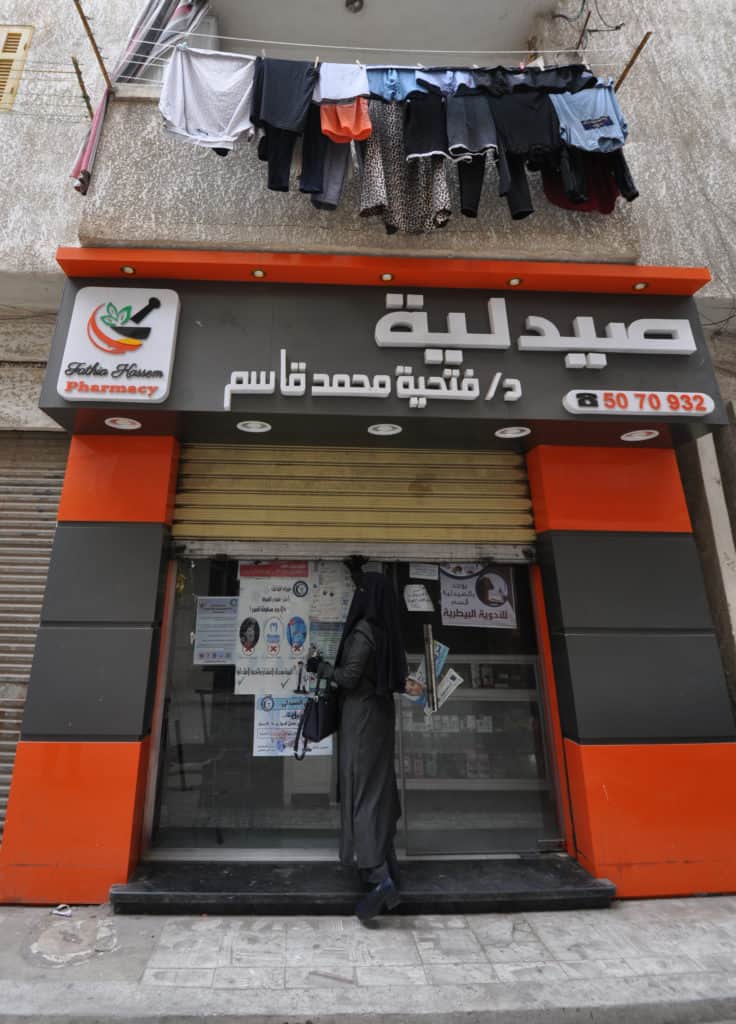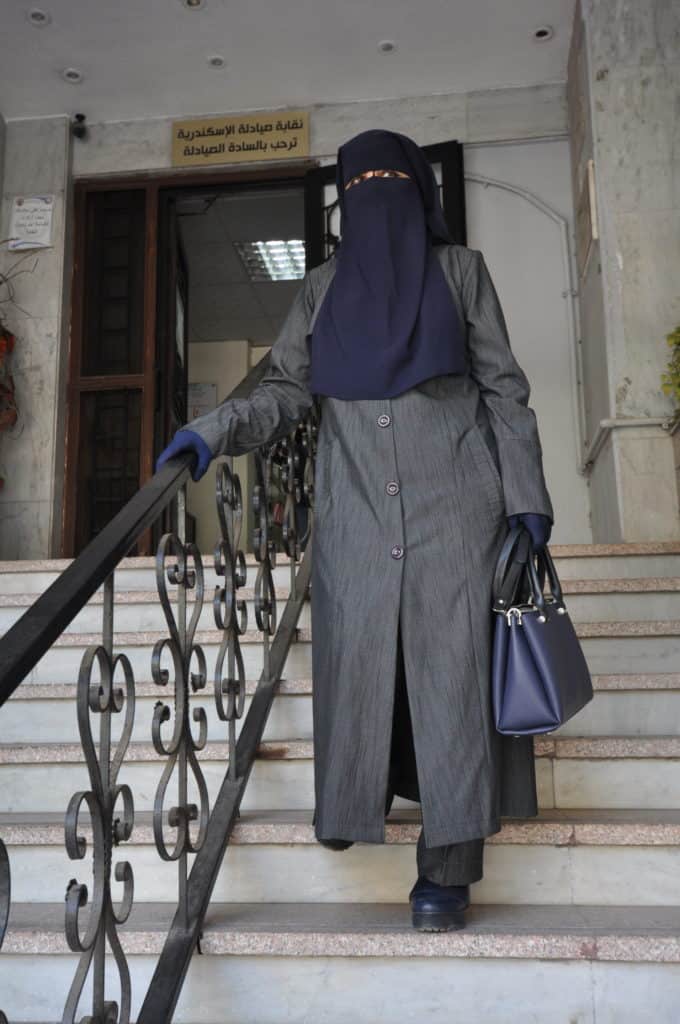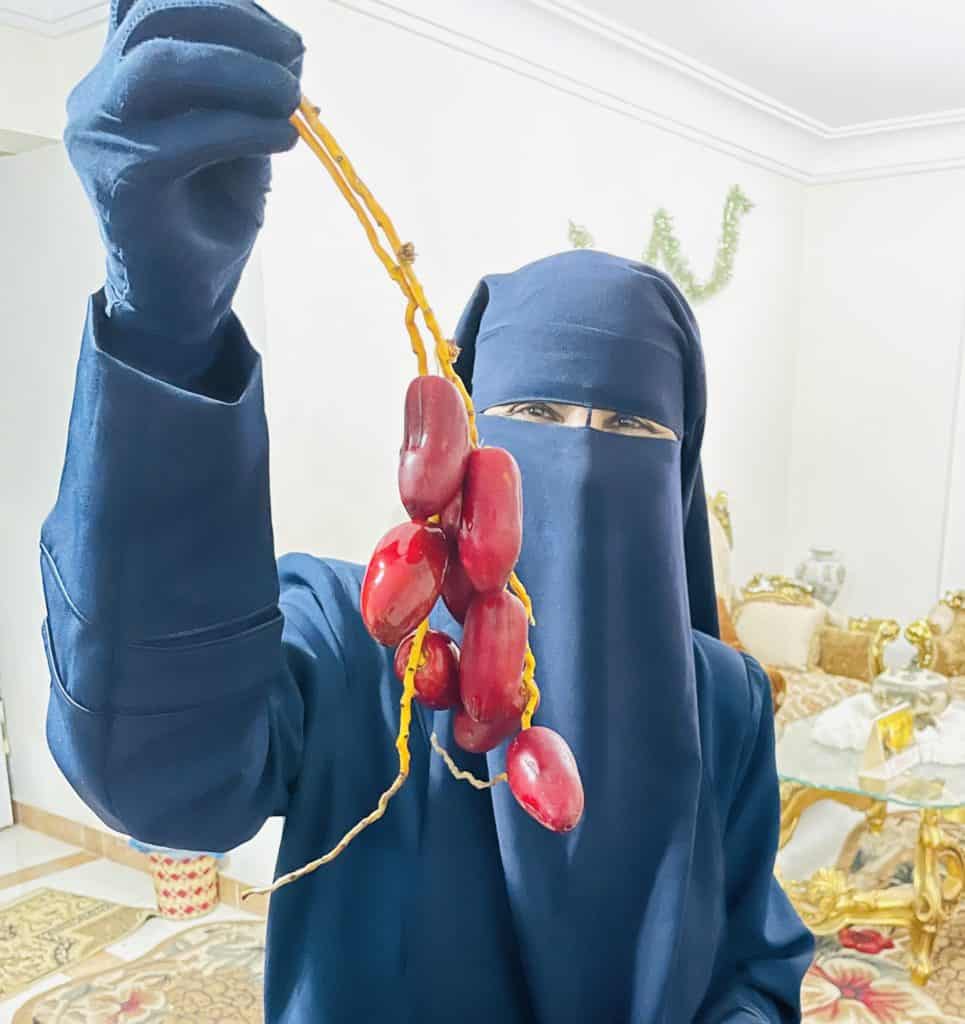This website uses cookies so that we can provide you with the best user experience possible. Cookie information is stored in your browser and performs functions such as recognizing you when you return to our website and helping our team to understand which sections of the website you find most interesting and useful.
Women Pharmacists in Egypt Provide

“Women need to work much harder than men to be successful. When I opened my first pharmacy, I was 27 years old. It was tough at the beginning, when I opened the pharmacy to deal with male clients, as they preferred to deal with male pharmacists. Gradually, I managed to build trust with the male clients and things now are going well. As a woman, you should be ready to fight for everything all the time,” said Dr. Fathia, 50, who is a pharmacist and small business owner.
A native of Alexandria, Dr. Fathia comes from a family of five children. She has lived alone since her mother passed away last year, but is very close to her brothers and sisters. When she is not busy with her work, she spends much of her free time with her nieces and nephews. Dr. Fathia also loves knitting.

After completing a five-year pharmacy school, Dr. Fathia spent five years working with the Health Insurance Authority Company. In 1998, Dr. Fathia’s parents helped her purchase her first pharmacy. In 2009, she opened a second pharmacy in another part of Alexandria. In 2020, Dr. Fathia became the deputy director of the Alexandria Syndicate of Pharmacists.
Asked why she chose a career as a pharmacist, Dr. Fathia said, “I like being part of a community and the pharmacy is just that. I know all my neighbors and we have become an extended family. For major health issues people go to the clinic, but for minor illnesses people come to see me. Even after they receive treatment at the clinic, they come here for after-treatment care. When they have some worries after the treatment, they often do not go back to the clinic. They come to ask my advice, and if I think that they should go back to the clinic I refer them there.”
The family planning training for pharmacists, conducted by the Ministry of Health with Strengthening Egypt’s Family Planning Program (SEFPP), is important because it ensures that pharmacists learn about all the modern methods available in Egypt and understand how to promote them to clients. “Family planning use is not only about access to services here. The person who provides services and how they provide them are equally important. As pharmacists, we are the frontline providers because we are close to the community. Because I am female, women feel even more comfortable to come and see me, since more than half of women (my own estimate) still do not feel comfortable going to see a male pharmacist. Therefore, when they have a choice, they prefer a female pharmacist like myself,” said Dr. Fathia.

Each day, Dr. Fathia sees more than 50 clients in each of her two pharmacies. This gives her plenty of opportunities to give advice on health and family planning to her clients, of whom more than half are women. Additionally, Dr. Fathia noted that women in the neighborhood often stop in to talk about their families and the situations they face. Dr. Fathia enjoys these conversations very much.
“In Alexandria, couples make decisions together concerning children, but men will always want to have boys. This is why you see some families will have three, four, five, or even six girls. This is because they keep having more pregnancies hoping for boys. Also, women are afraid that if they do not have a boy, their husband will take a new wife.”
By the end of August 2021, SEFPP had trained 704 pharmacists, like Dr. Fathia, in 11 governorates. Unfortunately, the data on family planning users who receive services from these pharmacists is not available. However, if we assume that each pharmacist sees 30 clients a day (a reasonable estimate based on observation), these 704 pharmacists have reached more than half a million (612,000) people. Their potential to influence couples’ decision-making on family planning matters is enormous.
The USAID-funded Strengthening Egypt’s Family Planning Program (SEFPP) is a five-year (2017–2022) project managed by John Snow, Inc. (JSI). SEFPP embodies USAID’s commitment to assisting the Government of Egypt strengthen its family planning and reproductive health services. SEFPP supports the Ministry of Health and Population and National Population Council to address Egypt’s growing population by increasing the use of family planning methods and promoting healthy timing and spacing of pregnancies, leading to a positive change in contraceptive use.

